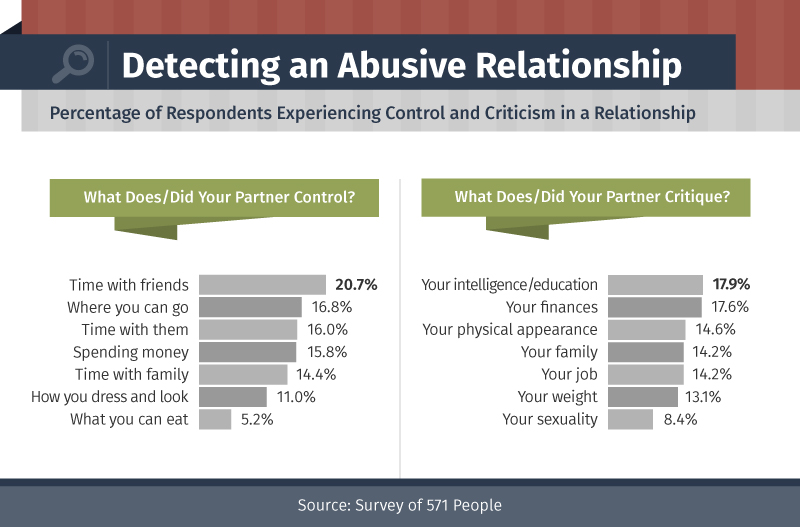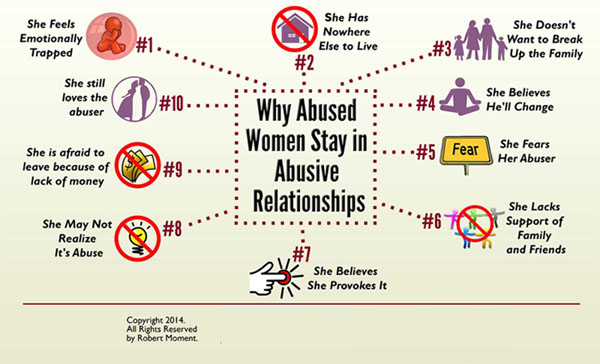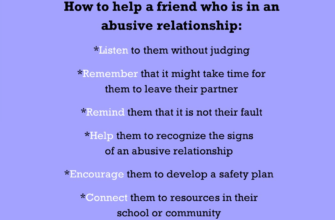This post is a little different from my standard topics, which are generally related to environmental sustainability in one way or another. It is, however, related to challenging perceptions, which is another theme on this blog. The perceptions I hope to challenge are related to a topic that is very important to me: abusive relationships. My goal in writing this post is not to draw attention to myself, but rather to an issue that is common, hidden, and stigmatized. If writing this post can serve to help just one person recognize a potentially dangerous situation and get out of it, it will have more than justified its place here.
I am writing these thoughts on the fifth anniversary (to the week) of learning that I was in an abusive relationship and deciding to get out. I don’t often think about the situation or the person I was dating at the time, but he showed up in a vivid and disturbing dream earlier this year, one I briefly mentioned in my series on the “Three-Day Effect” when describing unorthodox techniques for trauma recovery.[1] Below is a reflection on my personal experience in that relationship, as well as details about the previously-mentioned nightmare and the results of that experience. With this account may come some upsetting content.
“He never hit me”
It is a common thing to think that physical abuse is worse than psychological abuse, when it’s just more recognizable. For several years after moving to Pittsburgh, I volunteered in a women’s shelter, and as part of my training we learned that emotional wounds can last far longer than physical ones. Emotional abuse is the starting point, and while it doesn’t always progress to physical abuse, you can’t regularly physically abuse someone who isn’t conditioned to think – on some level – that she (or he) deserves it.
He never hit me, but there were a couple times when I thought he might. He was physically intimidating; he would posture; he would stand in the doorway to a room so I couldn’t leave; he would drive aggressively with the doors and windows locked to the point where I was afraid and asked him to stop, which he wouldn’t. One time we were walking in a park near my apartment after we’d had a fight – it was the middle of winter, so no one else was around – and I remember wondering if I could outrun him in the snow and ice if I had to.
It takes years of gentle manipulation to get to a point where you feel like you don’t have a way out. Usually women are in too deep by the time they realize what’s happening. (Note: I am going to use pronouns associated with female victims and male abusers throughout this post because that was the vast majority of cases we dealt with at the shelter, but abuse can happen to any gender.) Victims are frequently married, with children, with finances tied together, and with little or no remaining safety network of family and friends before they start to recognize red flags.

I look back to my own experience and think how amazingly lucky I was to get out so early on. We weren’t married or engaged; we didn’t even live together, though he stayed over at my apartment most nights. We were just at the point where he was slowly separating me from my friends and family: first objecting to things he didn’t like about them, then to my spending too much time with them. He never specifically told me not to see anyone, but we would get into fights whenever I did… so it was just easier for me to make excuses about being busy and avoid getting together.
Little decisions started to become impossibly stressful for me. I would deliberate over everything I did or said, anxious that I would upset him by making the wrong choice over things as inconsequential as what type of gin I got in a cocktail when we were out for dinner or what movie quote I posted in my chat profile. More often than not, whatever choice I made was the wrong one, even if it was a decision that had previously been “correct” or a non-issue. I started relying on him to make the decisions for me since I didn’t know what he wanted, and I didn’t want to fight about it. I thought this shift in responsibility was a smart move on my part, but it frustrated him to no end because if I really cared about him, he told me, I wouldn’t have to ask what he wanted.
We went to couple’s counseling, which didn’t work. In fact, things quickly got worse. Our counselor was very friendly, but she usually seemed to be focused on changing my behaviors and perspectives to fit his needs, rather than bringing us both to a place in the middle. He told me that I had too many issues of my own that I needed to fix before couple’s counseling could work for us, so – on his request – I sought out an individual therapist in order to be a better partner for him.
I hadn’t been seeing my personal therapist for very long (about four or five sessions) when she mentioned in an off-hand comment that couples in abusive relationships should never go to counseling. The reason behind this assertion is because while the victim is open and honest in hopes of making things work, the abuser can easily put up a false front that appears identical. During this process, the abuser gains more insight into the victim’s mind, making him more skilled at manipulating her. Additionally (and more simply), while most counselors try to bring both parties to somewhere in the middle, there is no middle ground with abuse. It is something that needs to stop – compromise is not an option.
I would like to blame our counselor for being incompetent, but I have heard more often than not that it takes an exceptionally skilled psychologist to even recognize what’s happening. He was charming: he had charmed me, my friends, and our counselor.
“I’m probably just overreacting”
Looking back on everything that happened, I still frequently question my memory and wonder if I overreacted. He often told me that I remembered things incorrectly, so it remains a possibility in my mind to this day. On top of that, I can’t help but remind myself that it wasn’t really that bad compared to what other women have experienced. For that reason, I often feel guilty for even mentioning my history or describing it as an “abusive relationship.” Maybe it was the fact that I was more used to seeing crises on the scale of battered women fleeing their husbands in the middle of the night with only a bag of clothes, but it never even occurred to me what was happening. I knew we had problems, but he had some legitimate stresses in his life that he was dealing with. I believed that we hadn’t encountered anything I couldn’t fix by giving him enough love and support.
I remember the exact moment five years ago when my therapist said “Well, that’s why people in abusive relationships shouldn’t go to couple’s counseling,” and it just hit me. I looked at her, dumbfounded, and asked, “I’m in an abusive relationship?” She looked at me, just as dumbfounded, and said, “I thought you knew.”
At that point, the emotional center of my brain seemed to shut down, and logic took over. I went into crisis intervention mode from my training at the shelter, and my brain simply walked through the steps I would have to go through to get out – not “should I leave?” but “what do I need to do first in order to leave?” My brain went into self-preservation mode and stayed there for the next eight months until he was no longer present in my daily life. Only once I was fully out of the situation did I even begin to feel any fear and recognize any emotional trauma.

It is difficult for me even to write the words “emotional trauma” in reference to my own situation. It feels horribly self-indulgent because so many women have gone through so much worse. This past week I spoke with my therapist about our landmark conversation and how I feel about things now, specifically that I believe it “wasn’t that bad.” She suggested that by minimizing what I went through, I have made the situation less scary in retrospect and therefore easier to deal with now.
She assured me that the situations I described to her at the time were real, and serious, and that I had to get out. There is no knowing what may have happened years down the road or how the situation might have escalated once I was in too deep, separated from support, feeling like I couldn’t leave. She gave me a good tool for when I question myself and my own memories: “What would you say to a friend who was experiencing this? Would you tell her that she’s overreacting? If she felt unsafe, would you tell her she’s imagining things? If you wouldn’t say it to a friend, don’t say it to yourself.”
Recovery
My husband and I met after I had decided to get out of the aforementioned relationship, but before I had fully extracted myself from the situation. Christian has borne the brunt of my emotional trauma, and he has done it like a champ. I made him wait for a long time before I felt like I could even consider being in a relationship again – and he didn’t pressure me about it. When we got married, I insisted that we didn’t tell anyone, I didn’t take his name, and I was firm about keeping our finances separate. He’s given me both the space I’ve needed and the comfort I’ve needed, and although he never knew me while I was in that situation, he has never minimized what I went through, and based on what he’s seen of the emotional aftershocks, I don’t think he could.
Pittsburgh is like a small town in many ways, and I have had anxiety over the very real possibility of randomly running into this person again – or even thinking that I saw him when I didn’t. My blood pressure and heart rate would rise, and my hands would grip the steering wheel tighter whenever I had to be driving near his house or going to stores where I knew he shopped. Part of me has hated having this anxiety because I don’t want to waste any more of my precious time or energy on him. That same part of me has felt guilty for spending many a self-indulgent hour talking to my therapist about issues stemming from that relationship. I have thought on many occasions that “I should be over this by now.”
After I had been out of the relationship for a year or so, the noise in my brain settled down with only occasional emotional landmines left over for friends and family to deal with. I would sometimes have a moment of panic when I thought I saw him somewhere. I didn’t really have any dreams or nightmares that I can recall… until a camping trip this spring. I dreamed that we were at my parents’ house, and he was blocking my way out. I knew he intended to hurt or kill me. I was hiding behind a couch, trying to get in touch with my mom and then my best friend, but my phone wasn’t working. I felt alone and helpless. After waking up, I was terrified to go back to sleep because I was convinced I would go back into the same dream. I sobbed, and Christian held me until it was light enough to leave the tent.

Similar to the accounts I had read of trauma recovery in nature and/or through the use of ayahuasca, which I described in my “Three-Day Effect” series, I experienced a vivid dream related to something I had not previously allowed myself to address in my waking life. Since that trip, he has shown up in my dreams more regularly, but those dreams have been consistently less disturbing: I am aware of his presence, but I don’t have a fear response, if any response at all. It is almost as if I am recognizing the fact that my experiences will always be there in my mind, but that he no longer has any power over me. Through these dreams, I have become more aware that if I do happen to run into him in the real world, my response will likely be closer to apathy than fear.
Trauma recovery is not a linear path, and I don’t think anyone ever really gets over trauma, though it can diminish with time and therapy. I lost friends because of that relationship – some of those friendships have been repaired, and some have not. I still regret things I did (or didn’t do) and decisions I made during that time, but I hope that by sharing my story I can help others who may be in an abusive situation recognize it as early as possible, get out, and deal with it.
The difficulty, of course, lies in the fact that it’s easier to get out of an abusive relationship when it’s less apparent that you’re in one. If you suspect that you may be in an unhealthy situation, please talk to someone – a friend, a counselor, or even me. There are resources available, and you should never feel like you’re overreacting. If you ever feel uncomfortable or unsafe, talk to someone.
Getting Help
The books, online articles, and TED talks below were resources that my therapist shared with me as I was working on getting out. They may or may not be helpful depending on specifics of any given situation, but I found them all profoundly impactful. The last two links are places to get help.
Books
- Disarming the Narcissist: Surviving and Thriving with the Self-Absorbed by Wendy T. Behary[5]
- The Gift of Fear: Survival Signals that Protect Us from Violence by Gavin de Becker[6]
Online Articles
- “Are You a Magnet for Narcissists?”[7]
- “The Effects of Gaslighting in Narcissistic Victim Syndrome”[8]
TED Talks
Support
- Find a Therapist, Psychology Today[11]
- The National Domestic Violence Hotline: 1-800-799-SAFE (7233)[12]
Thank you for reading.
[1] https://radicalmoderate.online/the-three-day-effect-part-4/
[2] https://www.mentalhelp.net/aware/physically-and-emotionally-abusive-relationships/
[3] https://guides.lib.wayne.edu/c.php?g=628707&p=4390891
[4] https://joetorre.org/resources/resources-for-youth/website-picture_tip-card/
[5] https://www.goodreads.com/book/show/15842953-disarming-the-narcissist
[6] https://www.goodreads.com/book/show/56465.The_Gift_of_Fear
[7] https://anupturnedsoul.wordpress.com/2013/07/20/are-you-a-magnet-for-narcissists/
[8] https://narcissisticbehavior.net/the-effects-of-gaslighting-in-narcissistic-victim-syndrome/
[9] https://www.youtube.com/watch?v=iCvmsMzlF7o
[10] https://www.youtube.com/watch?v=psN1DORYYV0
[11] https://www.psychologytoday.com/us/therapists
[12] https://www.thehotline.org/
4 Comments
Charles Korey · September 15, 2019 at 1:40 pm
thanks for such a meaningful and candid article!!!
Radical Moderate · September 16, 2019 at 1:10 pm
Thank you, Chuck.
And thank you for raising such a wonderfully supportive and respectful son.
Julia · September 16, 2019 at 9:00 pm
You’re amazing Alison, I’m so sorry you went through this but I think it’s great that you’re sharing your story.
Alison · September 16, 2019 at 9:02 pm
Thank you so much Julia. That really means a lot to me.